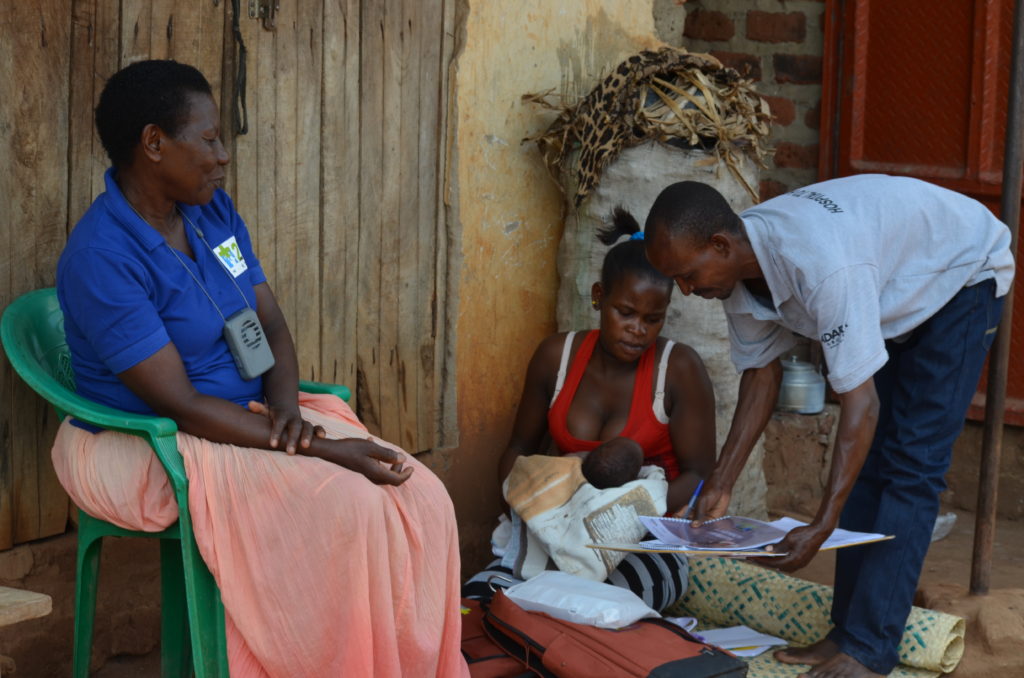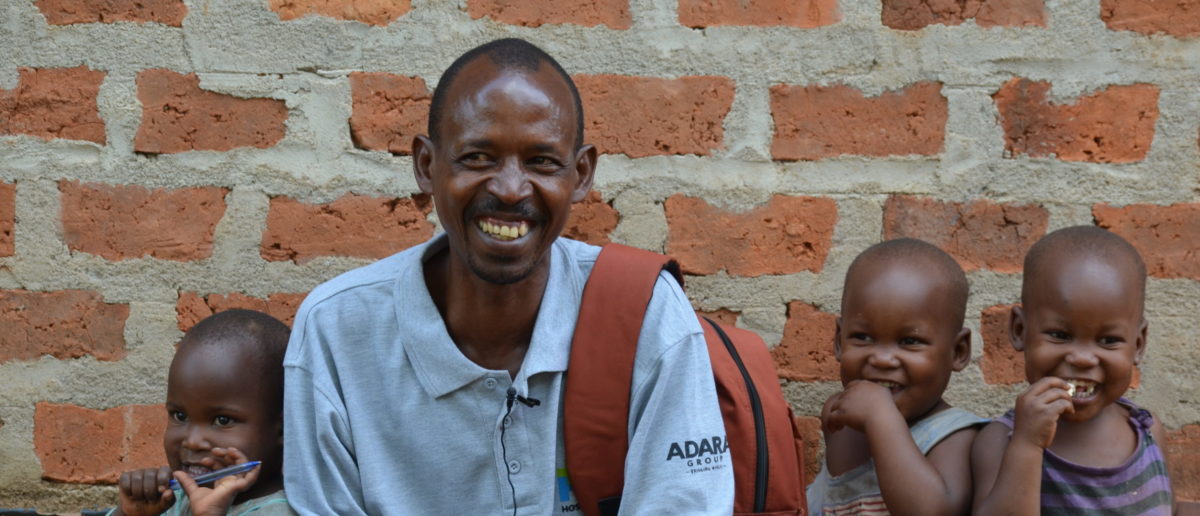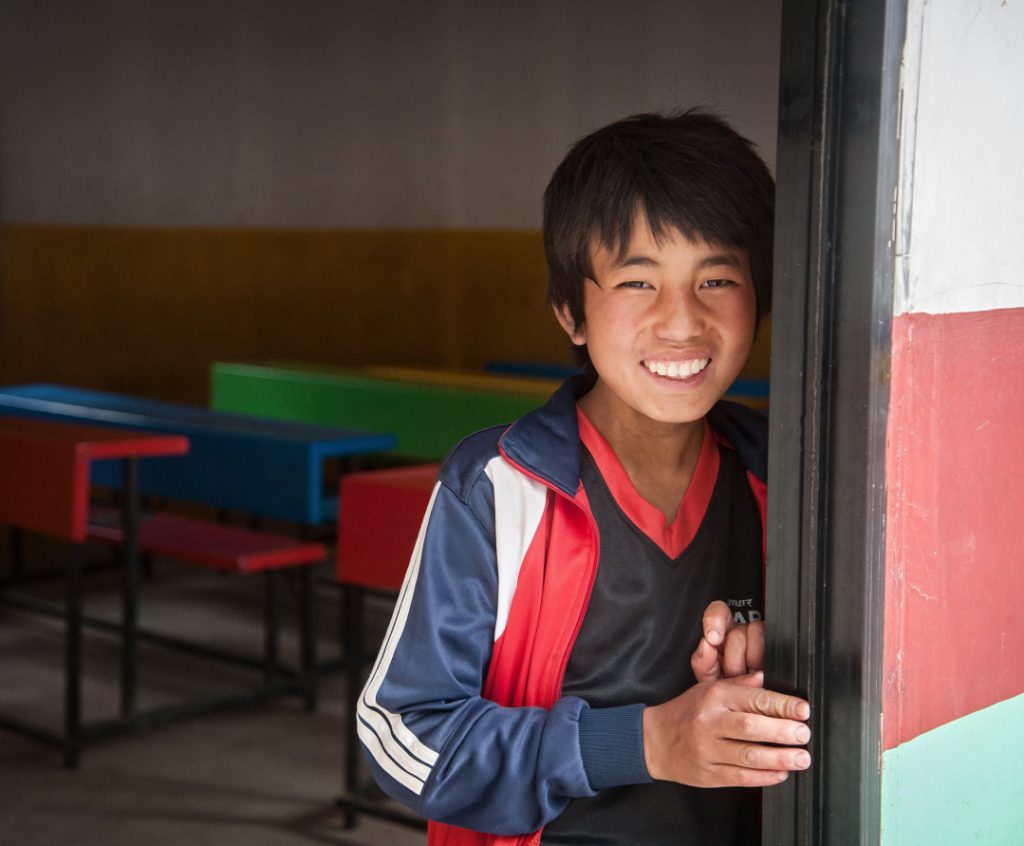Miracle and Gift sit next to their dad, smiling shyly around the thumbs lodged firmly in their mouths. Their sister Mercy sits on the other side of their dad, chattering happily. Tom, their dad, beams down at them. He considers being dad to triplets one of the greatest joys of his life.
Miracle, Mercy and Gift were born in 2016. Like many triplets, they were born too soon and too small. They spent nearly a month in the Kiwoko Hospital neonatal intensive care unit (NICU), getting stronger and bigger each day. After they were discharged, they were required to go back to hospital for regular follow-up visits.
“The return visits to the hospital were very difficult,” Tom says. “I always had to hire more than two motorcycles to take them to hospital, which was expensive.”
This is a challenge faced by many families after their newborns are discharged from the NICU. Although newborn follow-up care is critical to ensuring vulnerable infants survive and thrive after discharge, they might live hundreds of kilometres away or be unable to afford the cost of transport. As a result, many families simply don’t take their children back to the NICU for follow-up care. This challenge motivated Tom to become a Village Health Team (VHT) member as part of our Hospital to Home newborn follow-up programme. VHTs are community health workers, trained to share basic health information with the community.
“I became a VHT because I wanted to help my family and my community. I was not assisted as I’m assisting others now. Now I can support others to help their newborns grow up.”
– Tom

With the skills he received through his H2H training, Tom can help other families like his. In his role as a VHT, Tom visits babies who have been discharged from the NICU. His job is to assess their weight gain and the presence of any danger signs; provide breastfeeding support and health education; encourage parents to vaccinate their children; and refer babies to higher levels of care when necessary. Tom is determined to use his experience to make life easier for his community.
“What I learnt in the Hospital to Home training is determination first,” Tom reflects. “You have to be determined if you want to help others. I also realised that if somebody knows the danger signs, they can easily assist others.”

